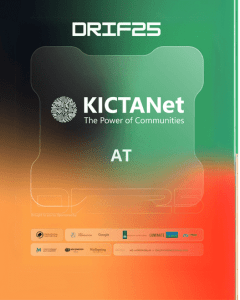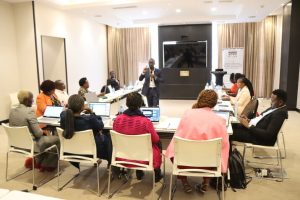Online Gender-Based Violence (OGBV) is a growing global crisis, with its prevalence rising sharply across Africa. While much of the reporting and research on OGBV focuses on high-profile individuals such as politicians, journalists, and human rights defenders, it’s important to recognise that ordinary internet users are equally vulnerable.
To address this issue, KICTANet has developed the OGBV Tracker, a tool designed to document and analyse incidents of online gender-based violence across Africa. The tracker aims to shed light on the prevalence, patterns, and impact of OGBV, with the ultimate goal of informing policy and advocacy efforts.
Key Observations
In the first week of mapping, the tracker revealed that politicians are the most targeted demographic in AI-based OGBV. This trend is fuelled by political discontent, particularly surrounding government policies and allegations of enforced disappearances of critics.
The data highlights how AI is increasingly being weaponized to perpetuate Online Gender-Based Violence:
- AI-generated images and videos depicting the Kenyan president as a devilish figure or a beast have circulated widely on X and TikTok, reflecting public frustration and dissent.
- Male government allies have been targeted through feminisation, with manipulated images and videos portraying them as women, intended to troll them.
- Women politicians have faced AI-generated explicit content, including undressed images, aimed at undermining their credibility and dignity.
AI-generated content, such as deepfake videos and manipulated images, has become a tool for harassment, humiliation, and intimidation. For instance, AI has been used to create non-consensual explicit content, digitally undress women in photos, and feminise male politicians to mock them. These tools amplify the scale and impact of OGBV, making it more pervasive and damaging.
Regional Extensions
While the tracker primarily focuses on Africa, AI-based trolling of key political figures has, for now, extended to other East African countries, such as Uganda and Tanzania. Interestingly, much of this content is generated by Kenyan-based accounts. These users even offer to extend their “services” to create AI-generated images of presidents in more authoritarian regimes like Rwanda, Uganda, and Tanzania.
Although the tracker focuses on OGBV cases across Africa, the current wave of AI trolling is a uniquely Kenyan social media phenomenon, given the specific targets and the nature of the attacks. The rise of targeted trolling in Kenya is closely tied to the country’s socio-political climate.
Recent demonstrations in Nairobi and the proposed Assembly and Demonstrations Bill have intensified online hostility against the political class. Social media platforms like X and TikTok have become battlegrounds for expressing dissent, often through harmful and gendered means. Additionally, some accounts on these platforms are leveraging sensational and harmful content simply to drive engagement.
So far, the tracker has not documented day-to-day users of other internet sites targeted by AI trolling.
Join the Movement
KICTANet will continue monitoring and mapping OGBV incidents across the continent and publish a quarterly report summarizing the findings from the tracker. Online gender-based violence is a collective challenge that requires a collective response. Stay informed, report incidents on the tracker or fill out the OGBV form to contribute to these efforts.
![]()




Good initiative
Thank you, Collins